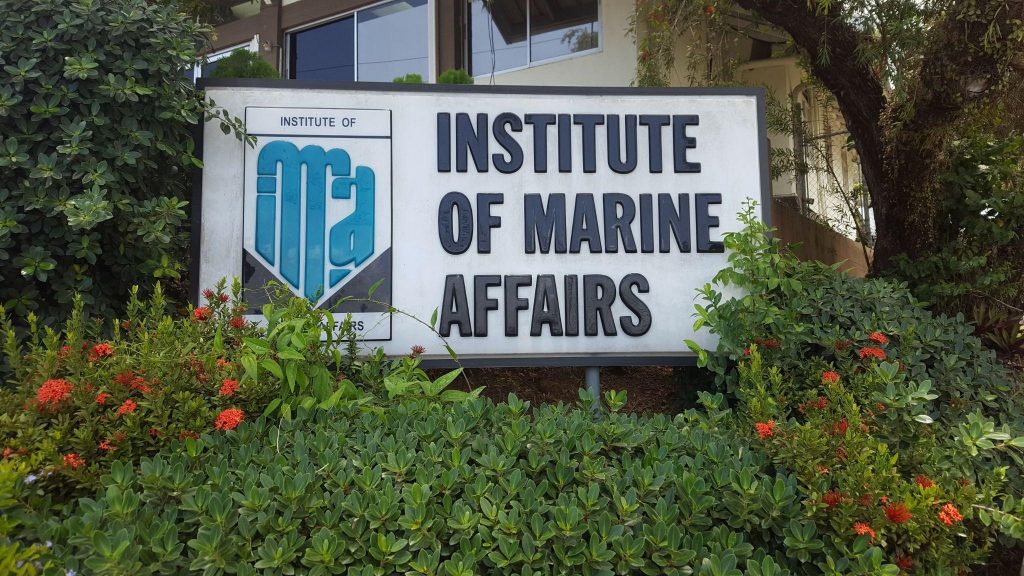Shining light on the advocacy and sustainability work of young environmental leaders working to make their communities safer and cleaner. As part of our commitment to youth engagement and equity, we are holding an ongoing series of interviews with individuals and sharing their stories to spread awareness.

Allison Pilcher, 26, is a policy director for the Connecticut Roundtable on Climate and Jobs (CRCJ). After studying sociology and environmental studies at St. Lawrence University in New York, she received a Master’s of Environmental Law and Policy, and now works to advance progressive climate and energy legislation in Connecticut.
Growing up in Vermont, Pilcher had always had an interest in climate change, particularly how it affects individuals. She discovered her passion for environmental sociology, enabling her to better understand environmental inequities at a global level. On her college career, she said, “Studying sociology broadened my understanding of different injustices, and specifically, the way they interact on a global scale. What we do in the United States is affecting island countries in the Pacific.” It was also during her undergraduate career that she gained knowledge of firsthand accounts of climate change, including in her own college community. St. Lawrence University is situated in the Adirondack Region, which has seen significant acid rain damage and new invasive species.

Pilcher augmented her scientific knowledge of the climate crisis from her internship at the Institute of Marine Affairs (IMA) in Trinidad, an island nation in the Caribbean. The organization researches the impact of climate change on sharks, corals, and megafauna. According to a 2020 report by the World Health Organization, Trinidad faces the risk of more high temperature extremes, as well as threats resulting from sea level rise, including coastal erosion, storm surges, and ecosystem disruption. As a lab tech with IMA, Pilcher studied how climate change is affecting Trinidad’s coastal ecosystems. When she returned, she received an internship with the St. Lawrence County Planning Office, where she worked on a shoreline resiliency study. The county has over fifty miles of shoreline, and houses located on the river are most likely to be devastated by increasing and worsening storms. “During Hurricane Irene and a lot of these bigger storms, [the houses on the water] are hit so hard. It’s another example of the most vulnerable people in society being hit the hardest and the first.”
Armed with her scientific and social knowledge of environmental justice, Pilcher chose to pursue a Master’s of Environmental Law and Policy at Vermont Law School. During her graduate program, Pilcher participated in the Environmental Justice Clinic, working on two different cases representing overburdened communities affected by toxic waste facilities. In one case, Pilcher worked with community groups based in Michigan to develop language access policies within state agencies to increase equity and the availability of information.
She also wrote and filed a formal Title VI, Civil Rights Act complaint against the North Carolina Department of Environmental Quality for the proposed Atlantic Coast Pipeline. The pipeline was expected to disproportionately affect indigenous groups, with the proposed route being within one mile of nearly 30,000 Native Americans, making up about 13% of North Carolina’s impacted population, while only being 1.2% of the state’s population. Ultimately, the pipeline project was canceled.

Pilcher’s top climate priority is transitioning to clean energy, but she emphasizes the need for widespread adaptation and change. “Climate change isn’t something that only affects certain people, certain jobs, or certain places.” She explained that climate change affects all areas of life, from teachers needing to educate the next generation, to nurses managing adverse health effects, to trade workers learning HVAC or solar installation.
Sharing her hopes for the future, Pilcher said, “It’s small and it’s not enough, but there is progress, and that gives me hope. Personally, I would love to see movement on carbon free and healthy schools in Connecticut.” She advocates for S.B. 961, which seeks to advance public health requirements in schools and new school construction. “Public school buildings are huge consumers of energy. We need to make them more efficient for the climate, for taxpayers who are footing those costs, and of course, for the communities around them who are suffering from air pollution.” The bill would increase indoor air quality in Connecticut schools, and Pilcher stresses the need for such regulations on a national scale.
Additionally, Allison and CRCJ are supportive of efforts of S.B. 1145 and S.B. 1147, bills that would strengthen Connecticut’s climate and environmental justice laws. They have also joined the Connecticut Coalition for Climate Action, which is comprised of organizations and individuals working to put the state back on the path to fulfilling its climate commitment.
Armed with an understanding of both the scientific and social side of climate change, Pilcher currently uses her knowledge to promote climate advocacy. She explained, “Advocacy and activism are important to me because I’ve had the opportunity to recognize and understand my privilege… a big part of what motivates me is the opportunity to use those unearned advantages to listen to and learn from people whose oppression I benefit from on a systemic level, and to use what power I have to amplify their voices and advance their solutions.” Pilcher emphasized the need to view climate activism from an environmental justice lens and recognize the breadth of the crisis. She currently serves as a Policy Director with the Connecticut Roundtable on Climate and Jobs.
